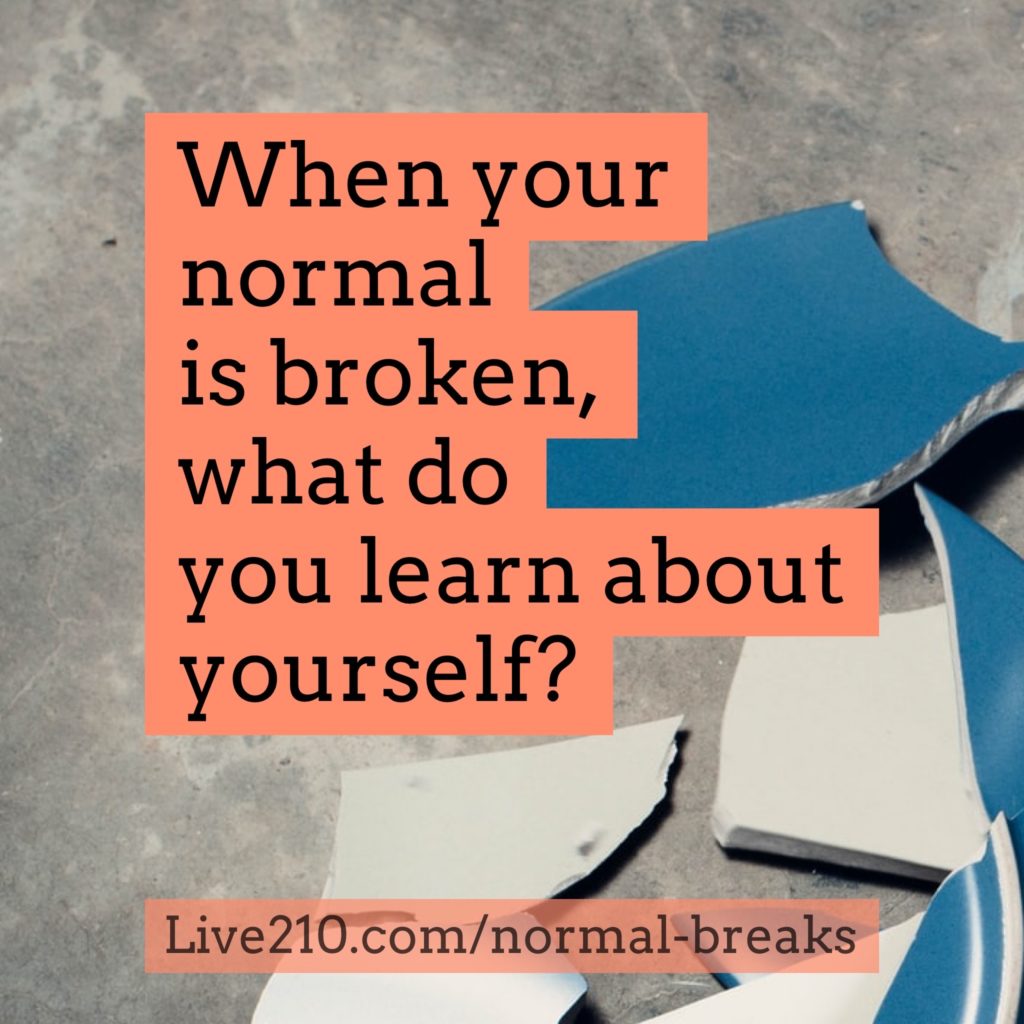5 min. to read.
All of a sudden, it becomes clear exactly how fragile “normal” is. The routines, expectations, and plans we all depend on to keep our days moving forward have all been upended by an implacable, invisible enemy. For many of us, this all feels so unexpected.
We’re seeing in unarguable ways exactly how little control we have over our lives. For some of us it’s the first time having to face that. A lot of us are learning that we don’t like that feeling.
I certainly am. How about you?
We are in the season of Lent, that six-week portion of the ancient Christian liturgical year, often marked by people swearing off something they enjoy for a few weeks. Lent is supposed to be a season for reflection, where we stop to face our lives.
It’s a time for confession. That simply means telling the truth about ourselves. Often confession is followed by repentance. Let go of any “church baggage” you have with that word. It simply means changing your mind about something.
Lent is also a fast, but the fast of Lent isn’t supposed to be a diet. It’s not an opportunity to perform holiness or practice self-discipline. The Lenten fast is an opportunity to see yourself more clearly.
When you aren’t distracted by everything that fills up your “normal,” it’s easier to see what’s going on inside.
Turns out, this year, we all get Lent, whether it’s part of our tradition or not. Whether we’re Christian or not! We’re giving up public gatherings, fun nights out, the security of knowing the grocery store has everything we need. We’re giving up the privilege of not thinking about the health of other people. We’re giving up the convenient myth of certainty.

What do you see in yourself?
In the spirit of Lenten reflection, I have a question for you. With all those things removed, and the new uncertainty we feel, what do you see within yourself? That may be a painful question. Stop for a moment and reflect. Consider the past few days.
What has your emotional reaction been to the instruction to practice social distancing? What was your reaction when you had to cancel events you were looking forward to?
Our small church decided to cancel our in-person gathering and move entirely online into a Facebook group and Zoom meetings. It’s a hard transition. Maybe you’ve had similar developments. What has been your emotional reaction to those changes?
What came up for you when you saw pictures of empty grocery store shelves? Or when you learned about “flattening the curve,” and the possibility that your State might not have enough medical resources to treat the potential number of sick?
What has been your emotional response to the media report? To people downplaying the concern? To people disregarding safety measures in public?
What has been your emotional response to the idea of staying home for two weeks? Or longer? Or perhaps your work makes it impossible for you to stay home. How has that impacted you emotionally?
When you think about not having the things you prefer or even the things you need, what comes up for you? How are questions like these impacting your emotions? Your thought life? Your anxiety level?
I’m not about to tell you that there is a right response or a more faithful response to these questions. Your emotions are neither good nor bad. They are data about the state of your inner world and outer circumstances, and about how you are experiencing those things.
The questions are meant to help you see yourself. When “normal” is cleared away, what do you see? The purpose is not to shame us, but to simply invite us to tell the truth about ourselves. That is always holy, right, and good.
Telling the truth leads to hope.
To say I am irritated that my plans are disrupted is not a failure. It’s just acknowledging the truth. I am frustrated with the media or the government or my in-laws. I am angry with the nay-sayers who are so flippant about risking other people’s lives. I am worried about money, or my job, or how to provide for my family. I am wondering where God is in all of this.
Those questions are not faithless. If they are true for you, then speaking them is, in fact, the path to healing, wisdom, and spiritual connection. What’s more, if questions like these are in your heart, you need to know you are not alone. You are part of a great throng of humanity who has felt precisely these things when “normal” shatters revealing life’s fragility.
In the coming days we are going to learn a lot more about ourselves. We are going to have opportunities to practice love and mercy in ways we’ve not had to before. We are going to need each other. To do these things well, we need not to be reactive, or driven by fear.
So, take some time to look at yourself. Notice how you’re feeling. Think about why you are having the reactions you are having. In the spirit of Lent, reflect and then confess—tell the truth about your own heart. Where needed, repent—change your mind.
Decide who you will be in this uncertain time. How will you love?
I’ll close with these words from Thomas Merton:
“You do not need to know precisely what is happening, or exactly where it is all going. What you need is to recognize the possibilities and challenges offered by the present moment, and to embrace them with courage, faith, and hope.”

I subscribed. How do I get the free journaling course?
Mark Grandstaff
Hey Mark, it will be delivered to your email inbox weekly for 6 weeks starting this next week. You will get a number of onboarding emails. Look for the one with the yellow header with the logo for the journaling course. It comes on Sunday mornings. (It may be delayed one week if you just subscribed today.) If you don’t see it after next Sunday, let me know and I’ll fix it.